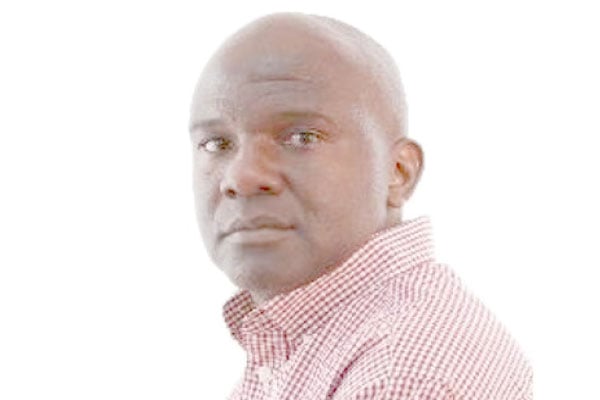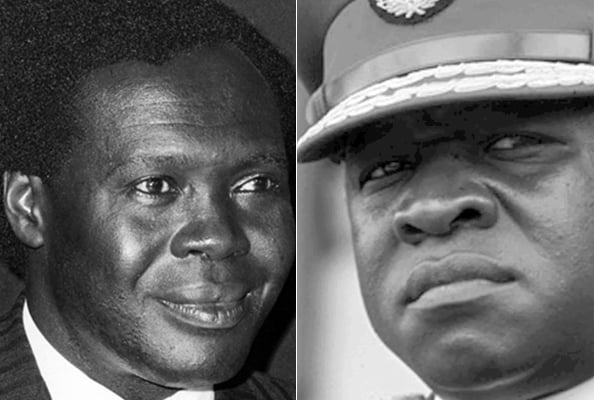Prime
Advice to Milton for a smooth Obote III

Author, Nicholas Sengoba. PHOTO/FILE
What you need to know:
- It is important that he surrounds himself with mediocre and low people such that they make him stand out as the wisest and most intelligent.
Thirty-seven years ago, on July 27, 1985, Ugandans in Kampala woke up to the sound of loud gunfire. These sounds were not exactly surprising considering the then recent history of the country.
From the time Uganda’s third president Idi Amin Dada was overthrown on April 11, 1979, Uganda was immersed in a cauldron of insecurity and gun violence. The combined force of the Tanzanian People’s Defence Forces (TPDF) and militias comprising Ugandan exiles, known as the Uganda National Liberation Front/Army (UNLF/A,) kicked out Amin.
When the objective of this combination (Amin) was no more, the motives of each group came to light. The TPDF was mainly about ensuring that then Tanzanian president Julius Nyerere had a grip on Uganda. His desire was to have his comrade Milton Obote return to the helm - which he did in the disputed 1980 election.
TPDF or the Wakombozi also famously had a memorable undisciplined side to them. They wrote themselves into history for having amorous sexual relations with women, stealing things such as watches, radio and television sets from civilians.
The UNLF had two major elements, the Kikosi Maalum associated with Obote’s acolytes from northern Uganda and FRONASA allied to Yoweri Museveni, comprising westerners and eventually, Banyarwanda refugees.
They jostled to capture State power. As a way of clearing the path for themselves, the news was dominated by murder, kidnap, rape of both prominent and ordinary people. It all ended up with the undermining of the central authority and the interim governments of Yusuf Kironde Lule and Godfrey Lukongwa Binaisa. By the time we got to the 1980 elections, the future looked deem. Nevertheless there was hope for the best hence the election. Then Museveni disputed the result and took to the tall grasses of Luweero in central Uganda.
ALSO READ: The Obote I knew
Obote’s government, despite putting on a brave face, was never settled from the word go. Museveni’s NRA and other guerrilla outfits like the UFM at first were viewed as having a nuisance value hitting and running away from the UNLA.
Then with time they became formidable as a result of persistence on their part. As for the UNLA, the end was nigh due to infiltration, indiscipline, nepotism and assistance by the locals of the war zone that emboldened and sustained the rebels.
The pressure mounted and that is when the UNLA split. The Acholi who comprised about 40 percent of the forces took exception to being left out of command and control yet they ‘were the ones dying on the battle field’.
Brig Bazillio Okello, then commanding the Northern Brigade, voted with his gun. Obote plus the UPC government was soon history.
Saturday the 27th was a sunny day. At about 11am, when most people were glued to their radio sets listening to a popular music programme by Andy Simon Kaweesa, a.k.a (ASK.) Notably, the second school term had just ended so most children were home.
Those days before FM radio, the iconic Radio Uganda was the only radio Station in the land. It had the first and last official word.
Programming was interrupted by the voice of 28-year-old Lt Walter Ochora. He declared that a bloodless coup had just taken place and the government of Obote was no more.
When normal programming resumed, ASK played Paul Young’s Everything Must Change. The excitement, especially in Buganda, was palpable. Their nemesis, from the days of the so-called 1966 crisis, when Obote deposed and exiled the Kabaka Edward Muteesa, had received his comeuppance - for the second time. The coup leaders headed by Bazillio Okello and Lt Gen Tito Okello reached out to the rebels. The NRM/A sought to have an agreement which was brokered by the then Kenyan President Daniel arap Moi. In the end it was signed alright but never held a drop of water. Other smaller ones like FEDEMU, FUNA, UFM came to the party and joined the government.
It turned out like it was with the fall of Amin. With the main object Obote gone, the army in Kampala was now a fragmented, aimless and lawless outfit of entitled militia without focus on military matters. NRA scattered and shot them out of town on January 26, 1986.
So many things have changed since then. Today, there are countless FM radio and television stations. But they are no longer the best medium of communication to the public. The proliferation of ICT and social media has relegated them far down the pecking order especially in terms of speed and reach. That wouldn’t be the only new thing if Obote came from his grave to rule for an unprecedented third time. In fact, he would have to ring several changes in order to avoid yet another acrimonious send off.
First, he would need to deliberately ensure that he is ethnically related to the bulk of the holders of the key aspects of command and control of the forces of coercion like the army and the police.
The same applies to most key public offices. The shameless favour of kinship ensures loyalty and gives a sense of ownership to the entire group which is key to survival. Should anyone outside the ethnic circle wish to get in, they must be able to prove their loyalty, pay allegiance and accept humiliation to preach the gospel of Obote being the only man capable of ruling Uganda.
Secondly, he would have to consolidate all political forces under his firm fist. Everyone on the table should be his follower and not have a following of their own that gives them the feeling that they can hold a leader at ransom.
It is important that he surrounds himself with mediocre and low people such that they make him stand out as the wisest and most intelligent. Anyone with a following should either be co-opted or annihilated in case they are recalcitrant. There should be only one hunter who decides how the prey or game is shared.
Thirdly, it would be important to embark on a scorched earth policy to impoverish communities and classes that have the potential of funding and sustaining rebellion. A tight leash must be held on land ownership and agriculture plus trade at all levels of economic activity from fishing, transport, hawking, to market stalls to retail and international trade. Wealthy classes should only be allowed to exist if they are beholden to the leader at the helm who may decide to impoverish them when they cease to support or bow down to him.
Fourth, Obote would need to drop his communist Marxist nonsense and adopt neo liberalism like he invented it. He would have to open up the economy as wide as possible leaving most of the cream to foreign capitalistic interests at the expense of domestic interests.
At the end of the day the country should be a good client economy running on high interest paying foreign loans offered by the West. That way Obote would rule forever like he once arrogantly desired and thought he would do.
Mr Nicholas Sengoba is a commentator on political and social issues
Twitter: @nsengoba




